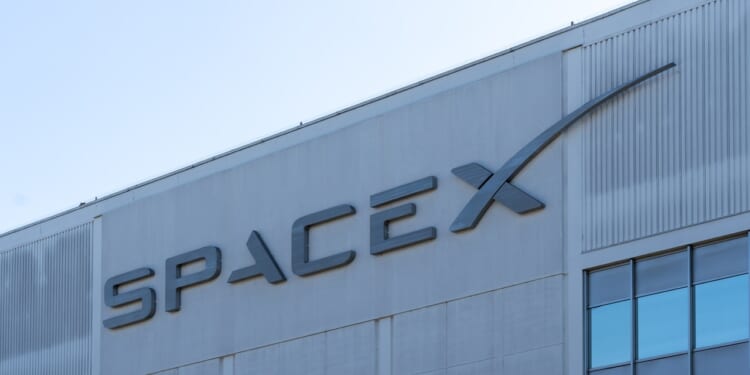The merger between the three European defense giants is a sure sign that Europe intends to compete head-on with Elon Musk’s American space behemoth.
Three major European aerospace and defense contractors—Airbus, Leonardo, and Thales—have signed a Memorandum of Understanding (MoU) to combine their space-business divisions into a single entity. The new company would bring together the space systems, satellite manufacturing, digital and space services—and any related service—capabilities of all three aerospace firms. This new conglomerate is slated to employ upwards of 25,000 people, generate roughly €6.5 billion in annual revenue, and carry an order backlog of more than three years of projected sales.
The proposal would see Airbus holding around 35 percent of the company, with Leonardo and Thales possessing around 32.5 percent each. These firms are hoping to have this new company operational within the next two years (subject to the European Union’s legendary regulatory and government approval process). As for why these three European firms are joining forces to maximize their opportunities in the critical domain of space that has to do with bolstering Europe’s strategic autonomy in the high ground of space.
However, this current venture excludes launchers, meaning the three firms are not taking on rocket manufacturing.
Understanding Europe’s Broken Space Industry
For decades, Europe’s space industry has languished beneath the pressure of the EU’s regulatory framework and the lack of vision that the post-Cold War “end of history” era imbued in the minds of the continent’s leadership. By merging some of these major firms for space operations, Europe is aiming to create scale and competitiveness with the Americans, Chinese, and Russians.
Without that scale, Europe would never be able to compete with the likes of SpaceX or the US defense and space industrial base.
Reuters claims this new conglomerate is to be Europe’s answer to SpaceX. And it very well may eventuate in that outcome. At the same time, Europe might be going down another costly dead end—because Europe itself has shown itself unable to play the kind of role in space that these three firms are clearly seeking to play.
For all the complaining about China’s recent rip-off of SpaceX’s reusable rocket, the fact remains even copying SpaceX’s reusable rockets is a complex affair that so far only one nation—China—has been able to do. What’s more, Beijing did so fully from the outside, whereas Europe is friendly and had access to the same information and capabilities that the Americans do.
It’s just that Europe has never been able to dominate the space industry like the Americans, Chinese, and Russians have. But they think that this new conglomerate will give them scale, which will give Europe leverage.
Still, it’s a smart (and long overdue) move by Europe. After all, the space market is evolving fast. From small satellites, mega-constellations, cheaper launches, all the way down to low-Earth orbit (LEO) services, traditional European companies are facing massive competition and major disruptions from American, Chinese, and Russian space programs and firms.
Europe Is in Dead Last Place in Space
Make no mistake: this move by these three European contractors is a recognition of that which I’ve been warning about for a decade—there is a new space race on. It is involving many more players than the previous space race between the United States and Soviet Union. And that competition is not only going to be left in the hands of governments.
By combining the forces of these three European juggernauts, many European analysts think they can ensure a competitive edge with the three major powers of the world today.
It’s also an admission that space is up for grabs. While the Americans have enjoyed a decades-long hold on the strategic high ground, the fact is that there are shifting power balances now between the major space powers—and Europe wants to ensure it can protect its interests in orbit. In a sense, then, the merger between Thales, Leonardo, and Airbus is a self-defense move by the European Community. It is basically Europe’s attempt to demand a seat at the “high-table” of space power that is otherwise dominated by the Americans, Chinese, and Russians.
While it remains to be seen if the Europeans can actually accomplish this task of uniting these three companies into a competitive space conglomerate, Europe could fashion itself into a competitive space power for the first time ever.
Of course, European regulators could (and likely will) choke the deal, and external competitors could still very easily outpace the Europeans. Still, this attempt proves how important space is becoming—and how unprepared to defend itself in any domain Europe truly is.
About the Author: Brandon J. Weichert
Brandon J. Weichert is a senior national security editor at The National Interest. Recently, Weichert became the host of The National Security Hour on America Outloud News and iHeartRadio, where he discusses national security policy every Wednesday at 8pm Eastern. He is also a contributor at Popular Mechanics and has consulted regularly with various government institutions and private organizations on geopolitical issues. Weichert’s writings have appeared in multiple publications, including The Washington Times, National Review, The American Spectator, MSN, The Asia Times, and others. His books include Winning Space: How America Remains a Superpower, Biohacked: China’s Race to Control Life, and The Shadow War: Iran’s Quest for Supremacy. His newest book, A Disaster of Our Own Making: How the West Lost Ukraine is available for purchase wherever books are sold. He can be followed via Twitter @WeTheBrandon.
Image: Shutterstock / JHVEPhoto.


















